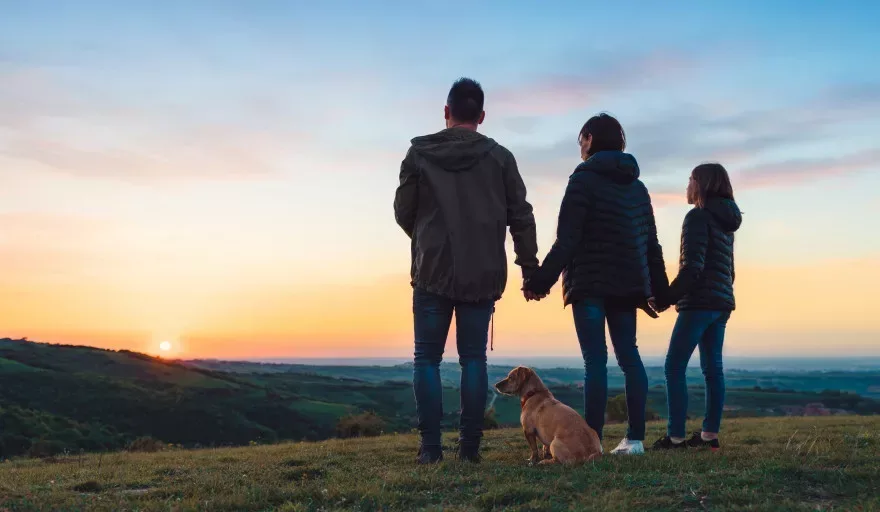How can travel businesses work towards overcoming the effects of COVID-19 while helping their communities?
Over the past months, countries have closed their borders and around a third of the world’s population has been placed under lockdown. At the time of writing, COVID-19 has caused around 122,000 deaths, and millions of people have lost their jobs.
Economically, the travel industry has been one of the worst hit, as it is entirely dependent on global mobility. But despite this, there have been numerous stories of generosity – of hotels providing educational videos to help homeschooled children, tour companies producing interactive tours so their guides get paid – alongside the inevitable news of hardship.
We asked five travel professionals to provide us with an answer to the question ‘how can travel businesses work towards overcoming the effects of COVID-19 while helping their communities?’ These are the results.
Erik Wolf, Industry Founder and Director, World Food Travel Association
“Small, locally-owned travel and hospitality businesses are the backbone of every community around the world. If these businesses close, then communities everywhere run the risk of mass homogenisation – where everywhere starts to look everywhere else. We already see this in metropolitan areas around the world, where there’s a Starbucks or KFC on every corner.
“Our main advice is not to panic. We’ve seen several businesses in the food tourism sector throw in the towel and state that they’ve shut permanently. We are all under extreme stress. Nevertheless, we encourage business owners to do everything they can to ride out the storm. The ship will right itself. The economy will rebound and people will travel again. The hospitality that these businesses provide is actually the face behind the place – the how and why we want to travel to your destination and business in the first place.”
Sophie Ibbotson, Tourism Ambassador for Uzbekistan
“Travel businesses need to work collaboratively with their communities at this difficult time, ensuring that they pay their bills and maintain the relationships they will need once again when the situation improves. Empty hotels can temporarily host key workers free of charge, restaurants can prepare and deliver meals to the vulnerable, and staff can volunteer their time.
“Downtime is also a prime opportunity to research your products and markets; audit, plan, and improve your existing marketing strategy and content; provide remote training for staff; and ensure you have up to date knowledge about products, best practice and regulations.”
Alice Gully, Co-owner of Aardvark Safaris
“Please postpone – don’t cancel your booking so that you are keeping your money in Africa and therefore protecting wildlife populations. This too shall pass, so importantly, feel confident to book future trips and therefore commit to camps in Africa so that they can keep staff on, and continue with their conservation and community efforts. It is so important that employees remain engaged and hopeful, and don’t go looking for an alternative sources of income, such as poaching.”
David Adams, General Manager, Cary Arms & Spa
“Overcoming COVID-19 needs a worldwide effort, which will be key to not only the ongoing success of the travel and hospitality industry but society as a whole. We all need to do everything we can to beat this and get back to as close to normal as possible. That means a healthy population, working economy and strong community – everyone needs to play their part for us to achieve this.
“It’s not just about looking after our own businesses – a fully functioning hotel and restaurant that doesn’t have a healthy, active and engaged community supporting it will not be a success. That’s why we are doing everything we can to make sure we are ready to both welcome back guests, new and old, and to help out in any way we can.
“We’re lucky to have the equipment to produce sanitiser on site and donate over 40 litres per day to Maids Care, a local community interest company who look after the most vulnerable in our community in partnership with the NHS. We are also working closely with another CIC, Re4orm. In addition to offering our support and facilities where needed, we have committed to donating £12,000 over the next six months, which will allow them to provide 800 hot meals and food packages per week to those most in need.”
Pip Jones, podcast and blogger at Pip and the City
“DMO’s and travel businesses are facing the difficult task of how to market and promote destinations when the world is shut down. A common theme I have seen is that they can encourage the community to come together in this tough time. In Little Rock, Arkansas, many local businesses are helping travel and hospitality businesses by offering free marketing, print materials and free food photography for restaurants.
“The industry can utilise its contacts to bring people and businesses together for the greater good. Destinations and travel businesses can also be looking at how they emerge from the other side of Covid-19 in a stronger and more mindful way. Now we have seen cities suffering from over-tourism empty, the air become cleaner and the sense of community grown stronger, we need to look at how can address the problems that tourism can create. How can we encourage people to travel in a slower, more mindful way, rather than just clocking up air miles and ticking off bucket lists?”
Pip recently recorded a podcast episode entirely dedicated to how the industry can recover from Covid-19, which can be listened to here.




















